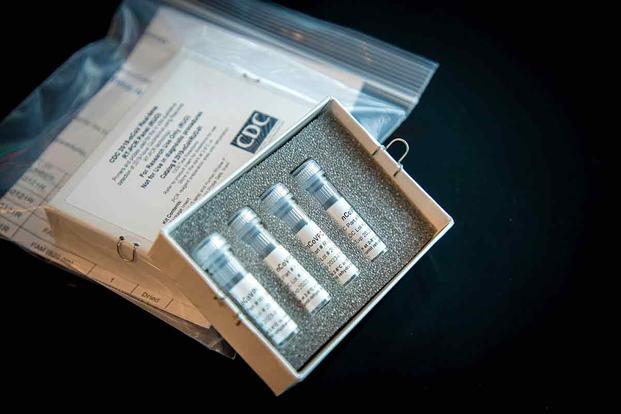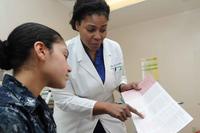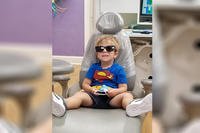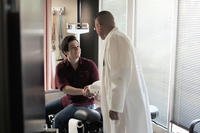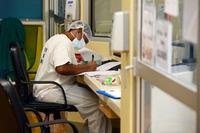You may know that eligible Tricare beneficiaries can get the COVID-19 test, which determines if they have the virus which causes the illness. You may have also heard about a COVID-19 antibody test which can determine if you have had the disease, or if your immune system has developed antibodies to the virus as a result of being exposed to it.
You may also know that unlike many other countries, there is an extreme shortage of both tests in the U.S. What do you do if you think you are infected? And which tests does Tricare cover? Here are the rules.
What COVID-19 Testing Will Tricare Cover?
Tricare, like other insurance providers and the Department of Veterans Affairs (VA), only authorizes tests when they are "medically necessary" as recommended by the Center for Disease Control (CDC).
Tricare covers both a test that determines if you are currently sick with COVID-19 and a test that screens for COVID-19 antibodies. Tests are currently only available for those who suspect they have the disease or may have had it already.
However, if you think you are infected you can't just show up at the emergency room or urgent care clinic and request testing. Instead, testing must be authorized by your medical provider, and the authorization will likely be based on a variety of factors, including your exposure, travel history and symptoms. To receive authorization you must have an in-person or virtual visit with your medical provider who will, if necessary, arrange testing in a military treatment facility or with a private doctor, depending on your situation and which Tricare plan you have. There is no out-of-pocket cost for the test or appointment where it is authorized.
As always with any major sickness, if you are very ill you should call 911 or your medical provider, or go to the local emergency room.
The number of both types of COVID-19 tests available in this country is extremely limited. Medical providers want to have plenty of tests available to be used in life-or-death situations.
What is the Difference Between the COVID-19 Tests?
The most commonly used test to determine if you actually have the illness is a cotton swab test. That test relies on a long aluminium swab placed up your nose or down your throat to collect a sample of mucus for analysis. That type of test determines the presence of the COVID-19 virus in your body using DNA and RNA sampling. It does not determine if you’ve previously been sick with the virus and since recovered.
Depending on where you live, it can take up to a week or more to get the test results back. There are also other types of tests in the works, but those are not yet approved by the FDA or covered by Tricare.
A second type of test screens for virus antibodies to determine if you are currently infected with the disease, or have been infected in the past. This test usually only works after at least 11 days from exposure, and therefore may not be the best test to use in all cases.
The antibody test will determine if your body has created antibodies, or white blood cells, that are specialized to fight the COVID-19 virus. As of the date this article was written, the antibody test is not as reliable as the swab test to determine your infection. The antibodies your body produces to fight COVID-19 are similar to those created to fight similar diseases like the common cold or flu.
The antibody test can be administered by drawing blood, often just a pin prick on your finger is needed. The antibody test may also help determine future immunity to the disease and give scientists better data to fight the disease.
Keep Up with Changes to Tricare and Your Other Benefits
Want to know about changes in military benefits as they happen? Subscribe to Military.com to get the latest benefits news delivered directly straight to your inbox.
